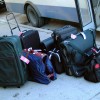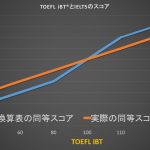UBC 交換留学 2010年01月 報告書 (英語)
1 Classes
Registration
It would be better to take an hour-long class because one and half hours-long is too long to concentrate, especially if you are an exchange student.
When a class is full, you can ask the department to let you in. Exchange students have a priority to take any courses. However, most courses have empty seats near the end of the registration. Do not panic!
You can take 6 courses if you ask International House.
You may be able to enter honors classes if there are empty seats.
Econ307 Honors Intermediate Macroeconomics Prof. Giovanni Gallipoli 17 people
No textbook. Prof uses only his lecture notes.
Grading: Homework 5%, Midterm 37.5%×2, Essay 20%
This class is designed to discuss theories of economic growth and the business cycle in a mathematical manner. The lecture exactly follows the lecture notes uploaded on the web. Homework is assigned almost every week.
This course also has a tutorial. Students submit assignments in the tutorial and review the solutions for these assignments.
We studied the competitive model and the Pareto optimal, the Euler equation, the intertemporal choice.
Econ326 Methods of Empirical Research in Economics Prof. Kasahara 59 people
Textbook: Introductory Econometrics by Jeffrey M. Wooldridge
Grading: Assignments 20%, Midterm 30%, Final50%
This course is an advanced class of Econ325, the goal of which is to deepen our understanding of econometrics. Topics include the simple linear regression and the multiple linear regression.
This course assigns a tutorial once a week to teach us how to use Stata( Statistic Software).
This month, we worked with the simple linear regression model.
Econ407 Topics in MacroeconomicsProf. Newman 20 people
No Textbook. Only articles.
Grading: Homework 20%, Midterm 30%, Final 50%
This course is aimed to discuss the current debates of monetary policy, growth and inequality and political economy. This course uses only articles. I feel this is difficult because I cannot fully understand the lectures.
Many students are reluctant to take this course because this course is difficult to understand and exam is said to be hard. However, I decided to take this course because the Prof is passionate about teaching his class and always takes care of his students.
We studied the Phillips curve, the debate of discretion and rule, the business cycle of local economy and the Taylor rule.
Econ456 International Macroeconomics and Finance Prof. Hnatokovska 64 people
Textbook: International Economics by Krugman, Paul and Maurice Obtsfeld
This course is intent on defining main concepts and developing a theoretical framework for the study of current account, international asset allocations and capital flows, as well as nominal and real exchange rates. There are several assignments.
The class is popular I think because the professor explains well and her accent is very clear.
We learned structure of Balance of Payment and Two period consumption investment models.
Tips for classes (③)
Discussion class
You need to read and deeply understand the readings to join the discussion.
I alleviate this work by sharing our summary before class. Each group responsible for a presentation makes a summary. So we exchange e-mails in class and send summaries to each other to quickly understand the topics.
For lectures that use lecture notes
Some class use lecture notes uploaded on the website. For these classes, it would be better to read them in advance. Unlike the textbook, it takes less time to read and you can take a better notes in class. Some points may be missing in the lecture notes, so pre-reading helps you find the important points. Of course, you can just use it as a review material if you want to save time.
Marks on exams
It was almost the first time for me to take essay-type tests. I received and reviewed my final exam papers. I noticed that I should write down both the key points for the questions and a good exposition for it. When I wrote only answers for some of the exams like I do in Japan, the marks were not as good.
2 English Practice
I am more confident speaking English these days. This may be because I feel my English is getting better and better. I had a lot of things I could not express well in the past. However, now I feel I can express a lot more things than I cannot express.
My Econ professor encourages me more to keep brushing up on my English. I am supported by many people in my Econ classes and dorm mates. So I can keep going so far.
3 Life
- Weather
Vancouver weather is still warmer than that of other areas. It is not so different from the weather in September and October in Japan.
Life on Campus
ü The types of key boards on Laptops or Desktops here are different from those in Japan. If you take a computer lab class, you should get used to it in the library beforehand.
ü The graph below is my schedule. I hope this helps you imagine how UBC life is.

4 Events
3rd Dormitory reopens
4th Class begins
10th Floor meeting
17th Floor dinner
18th Last registration day without withdrawal
Insanity
Insanity is the name of an exercise program like Billy’s Boot Camp. Dorm people exercise together in the house lounge once every two days. This is very fun and healthy. We can associate with many people and work hard with each other.
Running UBC
In this program, we go running every Sunday together with Place Vanier residents. We run around Campus.
5 Finance
Ordinary Expenditures $ $
Meals 35times 143
MSP(Medical Service Plan) 114
Restaurants 5 times 90
Groceries(pens, books, Binders) 80
Miscellaneous 66
Sum$492,97
Extraordinary Expenditure \
Textbook 180
Fido phone bill 6
Travel 34
Miscellaneous 40
Sum $260
Sum 753.13
Total9+10+11+12+1=$9731 Total Budget$11,129 Balance$11.129-9731=$1398
I had to spend much more for meals than I thought.
How much should you exchange to CAD$?
Seeing my current balance in CIBC, I think it is enough to bring $10,000 in advance. If you purchase a meal plan and buy textbooks on the internet by Visa, you need only $7000.
6 Others
A) If you get in trouble…, Go to International House and ask Florine
When you get in trouble with something like registration, class or applications, you should visit International House. They are willing to talk to you and help you out. Florine, who is a Go Global adviser, is very reliable and friendly. Other departments are usually not so helpful (or are sometimes a bit annoying).
B) Useful Website
Links below are important and I often use them. You should be familiar with those.
Student Service Centre (Registration, Grade, Payment)
E-mail service
E-learning (to get lecture notes, syllabus)
7. 留学先の選択
8月にどのように留学先を決めたか紹介した。今までに留学先や大学院の選択など何度か探す経験をした。過去の反省をまとめ、どのように探したか紹介したい。
1 検索にたくさんの時間を取らない
理由は、①ベストな選択をするよりも行ってから何をするかが大事であること、②Websiteなどでは情報が曖昧な上に、不確かであること、③自分の行きたい理由が変わること、④候補者として受かることに(TOEFLの勉強など)時間を割く必要があることからである。何回かに分けて徐々に調べた方がしっかり整理できて良かった。
2 他大学と比較しない
他大学と比較しながら選ぶとなるとかなりの労力が必要だった。個々の大学のコース、コスト、制度などを調べるのは大変である。さらに、実際に行ってみるまでは良く分からない。色々な学校と比較して決めるよりも自分の目的から浮かんだ大学を検索して必要な情報だけ集めて決めた方が良かった。
以上の2つのポイントが気付いた点である。次に実際にどういうプロセスで探しているか紹介する。
① 自分の興味のある分野、地名、言語、ランキングで大学をピックアップする。
② 調べるのは3つ。履修コース、ファイナンス(奨学金、物価)、入学条件(成績、TOEFL)である。
履修コースを見て自分の学びたい科目があるか確認し、ファイナンス(奨学金の有無や現地に行って日本人のブログなどで物価などの情報)を得て、入学条件を確認する。上の3つを調べるだけでも1大学に1時間はかかる。比較のしようがないのでそれで良ければわざわざ他大学を調べなくても大丈夫だと思った。それよりも、勉強のために時間を割き。行きたい大学の情報を徐々に集めていった方が効果的だった。
③ ゼミやオフィスアワーを利用して専門分野の先生に自分が選んだ大学の評判を聞いてみる。
自分の場合はアメリカとカナダの大学の5校に絞っていたが先生からご意見を頂くことで学校の評価や地域性を知ることができた。また、思ってもなかった候補先が出てきた。
④ 細かい要件などを複数回に分けて徐々に確認していく。
過去の留学の報告書を読んだり、現地で学んでいる人のブログを読んだりして、物価や街並みを確認していく。
以上のプロセスだけでも5~10時間はかかる。他大学や他情報を検索しようとするとさらに時間がかかる。おおまかな印象と最低限の情報で大体絞った方が良い。















